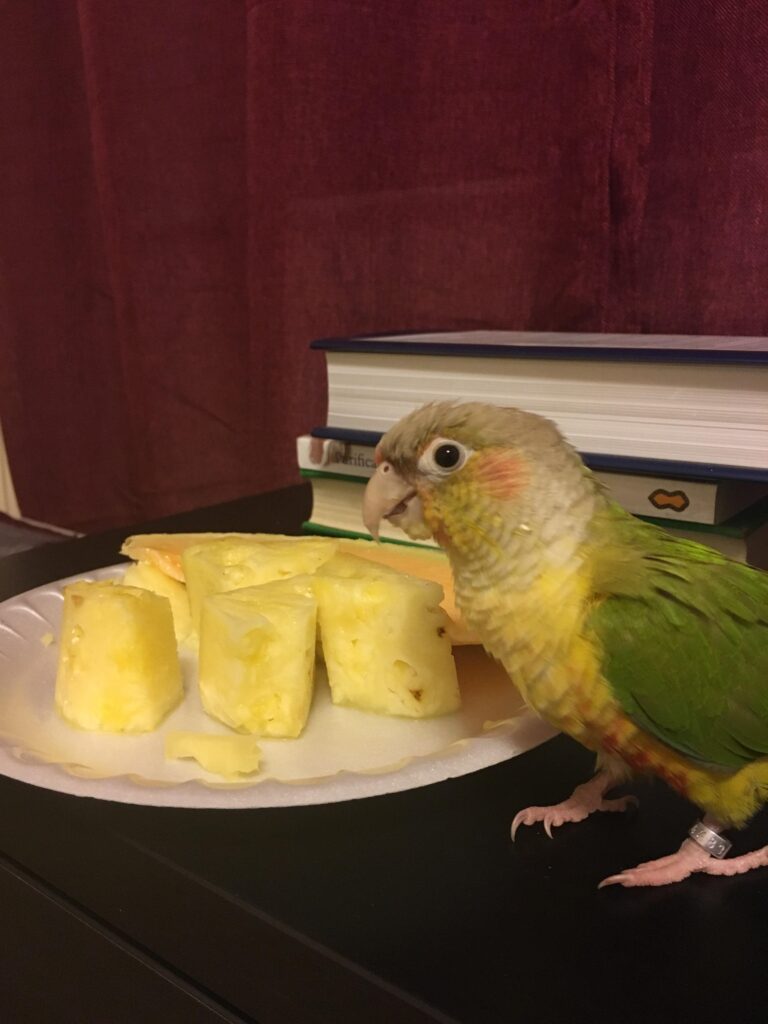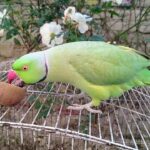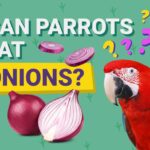Yes, parrots can eat pineapple. It should be given in moderation due to its high sugar content.
Pineapple can be a tasty and nutritious treat for parrots. Rich in vitamins and antioxidants, pineapple supports a parrot’s immune system and overall health. This tropical fruit also provides hydration, essential for active and playful birds. Ensure to remove the tough skin and core before offering it to your feathered friend.
Introduce pineapple gradually to monitor any adverse reactions. Balance it with other fruits and vegetables to maintain a well-rounded diet. Feeding pineapple in moderation ensures your parrot enjoys its benefits without overloading on sugar. Always consult your avian vet for personalized dietary advice.
Nutritional Benefits Of Pineapple
Pineapple is a delicious and nutritious fruit. Parrots can enjoy it too. Pineapple offers many health benefits for parrots. It is packed with essential vitamins and minerals. Pineapple also contains powerful antioxidants.
Vitamins And Minerals
Pineapple is rich in vitamins and minerals. These nutrients are vital for your parrot’s health. Here’s a table showing some key vitamins and minerals in pineapple:
| Vitamin/Mineral | Benefits |
|---|---|
| Vitamin C | Boosts the immune system |
| Vitamin A | Supports vision and skin health |
| Calcium | Strengthens bones and feathers |
| Magnesium | Regulates muscle and nerve function |
Antioxidants
Pineapple contains antioxidants that protect your parrot’s cells. These antioxidants help fight free radicals. Free radicals can damage cells and cause illness.
- Bromelain: An enzyme that aids digestion and reduces inflammation.
- Vitamin C: Also acts as a strong antioxidant.
- Flavonoids: Compounds that support heart health and reduce oxidative stress.
Including pineapple in your parrot’s diet can provide these powerful antioxidants. This can help keep your parrot healthy and happy.
Is Pineapple Safe For Parrots?
Parrots enjoy a variety of fruits. One common question is: Is pineapple safe for parrots? Pineapple can be a tasty treat. But it’s important to know if it’s safe.
Potential Risks
Parrots have sensitive digestive systems. Pineapple is acidic, which can cause problems. Too much acid can upset their stomach. It’s best to give pineapple in small amounts.
- Pineapple is high in sugar.
- Excess sugar can lead to weight gain.
- Acidic fruits can cause digestive issues.
Always wash the pineapple well. Remove the skin and core. The flesh is the safest part for your parrot.
Signs Of Allergies
Parrots can have allergies like humans. Watch for signs after feeding pineapple.
| Symptom | Description |
|---|---|
| Diarrhea | Loose or watery stools. |
| Vomiting | Regurgitating food. |
| Swelling | Swelling around the beak or eyes. |
| Itching | Scratching excessively. |
If your parrot shows any of these signs, stop feeding pineapple. Consult your vet if symptoms persist.
Preparing Pineapple For Parrots
Parrots love fruits, and pineapples are no exception. Preparing pineapple for parrots is simple. Follow these steps to ensure it’s safe and tasty for your feathered friend.
Choosing The Right Pineapple
Start with a ripe pineapple. Look for a golden color and a sweet smell. Avoid pineapples with dark spots or a fermented odor.
- Check for firmness by pressing gently on the skin.
- The leaves should be green and fresh.
- Avoid pineapples with soft spots or mold.
Proper Cutting And Serving
First, wash the pineapple under running water. This removes any pesticides or dirt. Use a clean knife and cutting board.
- Cut off the top and bottom of the pineapple.
- Stand the pineapple upright and slice off the skin.
- Remove the eyes by cutting in a spiral motion.
- Cut the pineapple into quarters and remove the core.

Credit: pangovet.com
Feeding Guidelines
Parrots enjoy eating fruits, and pineapple is one of their favorites. But, feeding pineapple to parrots requires some guidelines. This ensures they get the right nutrients and stay healthy.
Portion Control
Parrots have small stomachs, so portion control is important. A small piece of pineapple is enough for one serving. Too much can cause digestive issues. Cut the pineapple into small, bite-sized pieces. Remove the tough core and any seeds before serving.
| Parrot Size | Portion Size |
|---|---|
| Small Parrots (e.g., Budgies) | 1-2 small pieces |
| Medium Parrots (e.g., Cockatiels) | 2-3 small pieces |
| Large Parrots (e.g., Macaws) | 4-5 small pieces |
Frequency Of Feeding
Pineapple should not be a daily treat. Feed pineapple to your parrot 1-2 times a week. This helps prevent overconsumption of sugars. Balance is key in a parrot’s diet. Ensure they get a variety of fruits, vegetables, and seeds.
- Once a week for small parrots
- Twice a week for medium to large parrots
Always monitor your parrot’s health after introducing new foods. Look for signs of allergies or digestive problems. If you notice any issues, stop feeding pineapple and consult a vet.
Alternative Fruits For Parrots
Parrots enjoy a variety of fruits as part of their balanced diet. Pineapple can be a treat for them, but it’s good to mix things up. Let’s explore some alternative fruits for your feathered friends.
Safe Fruit Options
- Apples: Remove seeds before giving to parrots.
- Bananas: Easy to digest and loved by parrots.
- Blueberries: Packed with antioxidants and safe for parrots.
- Oranges: Rich in vitamin C but offer in moderation.
- Mangoes: A tropical delight that parrots enjoy.
- Grapes: Sweet and hydrating, but limit the quantity.
Nutritional Comparison
| Fruit | Calories | Vitamin C | Fiber |
|---|---|---|---|
| Apple | 52 | 14% | 2.4g |
| Banana | 89 | 15% | 2.6g |
| Blueberries | 57 | 16% | 2.4g |
| Orange | 47 | 88% | 2.4g |
| Mango | 60 | 60% | 1.6g |
| Grapes | 69 | 4% | 0.9g |

Credit: www.reddit.com
Observing Your Parrot’s Reaction
Introducing new foods to your parrot can be exciting. Pineapple is a sweet treat, but it’s important to observe how your bird reacts. This ensures their safety and well-being. Let’s explore the key areas to watch.
Behavioral Changes
After offering pineapple, watch your parrot’s behavior closely. Look for signs of discomfort or unusual activity. Birds might show excitement or curiosity initially. Positive reactions include chirping and eagerness to eat more.
- Excitement and chirping
- Eagerness to eat more
- Unusual activity or discomfort
If your parrot seems lethargic or distressed, it could be a negative reaction. Monitor their interaction with toys and cage mates. Behavioral changes might indicate how well they tolerate pineapple.
Health Monitoring
Health is a crucial aspect when introducing new foods. Check for any signs of digestive issues. Healthy droppings should be consistent in color and texture. Any changes might signal a reaction.
| Aspect | Normal | Concern |
|---|---|---|
| Droppings | Consistent color and texture | Changes in color or consistency |
| Energy Levels | Active and playful | Lethargic or less active |
Observe their energy levels and appetite. A healthy parrot remains active and playful. If you notice any changes, consult an avian vet.
By carefully monitoring these aspects, you can ensure your parrot’s well-being. Pineapple can be a delightful treat, but always prioritize their health.
Consulting A Veterinarian
Consulting a veterinarian is essential when considering new foods for your parrot. Parrots have unique dietary needs, and a veterinarian can provide expert advice. They can also ensure that introducing new fruits, like pineapple, is safe and beneficial.
When To Seek Professional Advice
Parrots have different reactions to foods. It’s important to consult a veterinarian when introducing pineapple. They can help determine if your parrot has any allergies. Also, they can ensure that pineapple fits into your parrot’s overall diet.
- If your parrot shows signs of discomfort or illness.
- If your parrot has pre-existing health conditions.
- If you’re unsure about the proper serving size.
Tips For A Healthy Diet
A balanced diet is crucial for a parrot’s health. Pineapple can be a part of this diet, but it should be given in moderation. Here are some tips for maintaining a healthy diet for your parrot:
- Include a variety of fruits and vegetables.
- Ensure fresh water is always available.
- Avoid foods high in sugar and salt.
Consulting with your veterinarian can help you create a balanced diet plan. They can provide specific recommendations based on your parrot’s needs.
| Food Type | Frequency |
|---|---|
| Fruits (like Pineapple) | Occasionally |
| Vegetables | Daily |
| Pellets | Main diet |

Credit: www.youtube.com
Conclusion
Parrots can safely eat pineapple in moderation. This tropical fruit offers vitamins and hydration. Always remove the tough skin and core. Monitor your parrot for any adverse reactions. Pineapple can be a delightful treat in their balanced diet. Remember to consult your vet for personalized advice.
Happy feeding!
Ryan Everhart is a passionate bird enthusiast and blogger, primarily writing on his website, Avian Whispers. His journey into the world of bird blogging began with a deep interest in parrots, a species that captivated his attention for their intelligence and social behavior. Over time, his content expanded to cover a broader range of bird species, offering insights into bird behavior, care, habitats, and conservation.
Ryan is dedicated to educating his audience, which includes both new bird owners and seasoned enthusiasts. His writing is filled with personal experiences, expert knowledge, and practical advice on bird care. Through Avian Whispers, he aims to foster a deeper appreciation for birds, emphasizing their role in nature and the joys of having them as pets.
Starting with articles focused on parrots, Ryan’s work now encompasses a diverse range of topics such as feeding, training, habitat enrichment, and bird health. His love for birds extends beyond parrots, diving into various avian species. His informative and heartfelt writing reflects his commitment to the well-being of birds and the desire to help others connect with these creatures.
As a growing voice in the bird blogging community, Ryan strives to provide a platform where bird lovers can learn, share experiences, and connect over a shared passion for avian life. His blogs are not only educational but also serve as a reminder of the importance of protecting and nurturing the bond between humans and birds.




